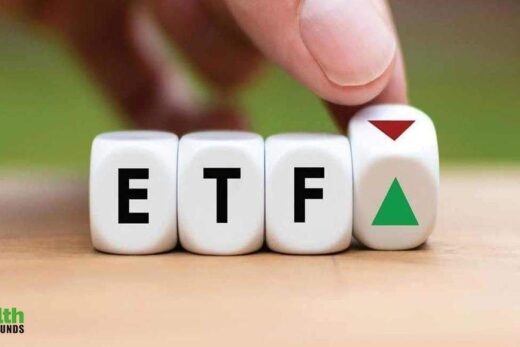When I think about 2020, it clearly stands out as a unique year in my career (as well as life). It was an action-packed year, no doubt! And it felt like events that are usually spread over many years got crunched together into making this one extraordinary year. However, when I look back and ponder- what I learn as an investor? The answer that comes to my mind is: “a whole lot …but nothing new”. This view is personal, but I believe a lot of investors like me (who would have spent a couple of decades in the capital markets), would agree that the markets in 2020 reiterated a lot of important investing lessons rather than teach new ones.
Here are the few lessons that stood out for me (not in any particular order):
Never waste a crisis:
Crisis creates fear; And widespread fear creates opportunities for investors. When people are fearful, their actions are primarily driven by emotions rather than logic or data. Investors become extremely risk averse, they panic and they sell their holdings at valuations which discount the risks completely. Such market conditions are hunting grounds for smart long-term investors.
Today, many investors are looking back in regret that they did not increase allocation to equities during the first half of the calendar year. Only those investors who could overcome myopic loss aversion and were prepared to be patient utilized the opportunity.
Need to understand crowd behavior
The financial market cycles are primarily investor behavior cycles. Over a cycle, the investor sentiment swings like a pendulum between euphoria and panic. While economic and business cycles also play a role in the market movement, it is the investors behavior that a) exaggerates the market movement on either side (overreaction) and b) influences, to some extent, the future course of business cycle in the direction of its bias (reflexivity). Understanding investor behavior and identifying divergences from rationality hence become extremely important for successful investing.
Going against the crowd and being a contrarian investor is difficult but necessary if you want to pick up bargains. To be successful at that, one needs to combine the knowledge of fundamentals with a good understanding of the crowd behavior.
Temperament is more important
One of my favorite quotes from Benjamin Graham is, “We have seen much more money made and kept by ‘ordinary people’ who were temperamentally well suited for the investment process than by those who lacked this quality, even though they had extensive knowledge of finance, accounting and stock market lore.” Graham highlights the importance of temperament over knowledge. Knowledge and understanding of the markets will help design a good investment plan but it takes the right temperament to execute those plans in the right manner when the time comes.
We plan to be greedy when people are fearful and buy when the valuations are attractive. But, many times, in the hot state of emotions we end up doing the exact opposite. We give in to greed, fear and other biases that lead to inferior investment outcomes.
Catching the exact top or the bottom is extremely difficult
Investors have been attracted to executing buying and selling decisions based on the right time rather than right price. To that end, people endeavor to forecast the market movement over the short term. Especially during rare or unique events like Covid-19, timing the market is particularly difficult. Since there is no precedence of such an event, it is difficult to estimate the periodicity to the crisis. This is called ‘duration blindness’.
Investors must accept that they won’t be able to catch the exact top or the bottom of a move. They need to invest based on intrinsic value and accept the risk that markets can go lower even after they bought securities at attractive prices.
Your attention is a scarce resource; use it wisely
Attention is scarce and there is enough noise in the financial markets to keep investors distracted from their core investment process. Here I use ‘noise’ as representative of data / news flow / small events which ideally should not have a significant impact on the investor’s decision-making process (unlike information). However, noise does take focus away from long term investing and leads to shrinkage of investment horizons. Noise creates excitement and anxiety; and induces participants to trade more. 2020 has been a very ‘noisy’ year too. Investors who focused on their investment process and cut the clutter ended up doing better.
Narratives are seductive; data is important, but handling data correctly is critical
As lockdowns eased, many analysts and investors entered into a race to collect more and more real-time information about what is happening ‘on the ground’ in various businesses. I haven’t seen a day when some research house hasn’t sent me takeaways from channel checks, excerpts from company interactions, management commentary, dealer survey or consumer survey. Add to that seductive market narratives, and numerous anecdotes that start with “I know someone who…”. Turns out we are not very good at handling so much information.
While determining a trend or testing a hypothesis based on the incoming new data, one has to check its strength or extremity of the evidence and its weight or the predictive validity. Using the right sample set (in terms of size and diversity), determining and anchoring on base rates combined with conducting unbiased (and statistical) analysis can lead to better decisions.
The long term advantage
Since a majority of investors are trying to outsmart each other in the near term, joining this herd is likely to generate only average results. The opportunity for superior returns is in looking beyond three years (5- 10 years is better) and investing in businesses or investment themes which are not fully appreciated by this crowd. For someone who had, last year, taken a long-term view of a decade, for example, the crash of early 2020 would have looked like a great opportunity to invest. You may accuse me of hindsight bias. But make an investment plan for a decade right now and see if there is a difference in data that you want to track, the businesses you want to follow, the valuations that you want to pay and also how you would react to short term bad news. Are they a problem or an opportunity?
The value of discipline
There are many different strategies, factors and styles that investors adopt to beat the market. Some of them don’t work at all. But, of the ones that do work, none of them work all the time. Many super-investors have undergone painful phases of underperformance. However, they have generated healthy returns over a longer run because they stuck to their philosophies and did not switch their styles during downturns. If the investors give up discipline and succumb to emotional pressures, the resultant inconsistency in decision making will more often lead to poor returns. In investing, one has to deal with complexity and uncertainty. But that doesn’t mean one has to try to be extra clever and think out of the box every day. Once a good, time-tested and profitable investment approach or style is identified, one has to focus on executing with discipline. I believe it would have worked in 2020 too!
Eluid Kipchoge of Kenya is a world record holder for completing the marathon (42km) in 2h 01m 39s. In October 2019, at a special event, he even broke the 2-hour barrier! He inspires runners across the world saying “only the disciplined ones are free in life. if you are undisciplined, you are a slave to your moods”. In investing too, if you don’t follow a good process, you will be slave to not only your emotions but also slave to the moods of the crowd.
(The writer is the Head – Investments, Equities at Canara Robeco Mutual Fund)



